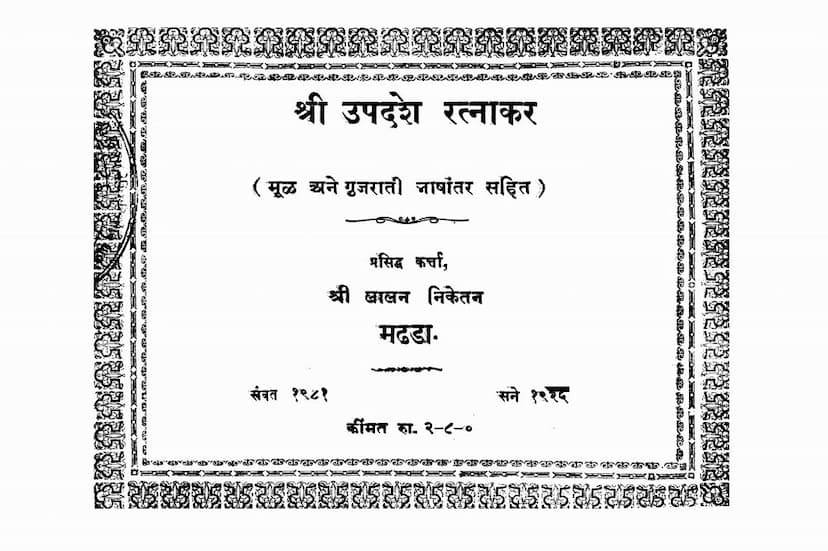Updesh Ratnakar
Added to library: September 2, 2025

Summary
The book "Updesh Ratnakar" by Lalan Niketan, published in Samvat 1989 (1925 AD), is a compilation of Jain teachings and guidance. The provided text contains detailed explanations of various concepts within Jain philosophy, presented in a way that aims to enlighten the reader.
The catalog link (https://jainqq.org/explore/023410/1) suggests that the book is available through the Jainology portal, indicating its significance within Jain literature.
Based on the provided text, the book likely covers a range of topics essential to Jainism, such as:
- Core Jain Principles: The essence of Jain teachings, focusing on ethical conduct, non-violence (ahimsa), truthfulness (satya), non-stealing (asteya), celibacy (brahmacharya), and non-possession (aparigraha).
- Spiritual Guidance: "Updesh Ratnakar" translates to "Ocean of Jewel-like Teachings," implying that the book offers profound spiritual advice and wisdom.
- Practical Application: The text likely delves into how these principles can be applied in daily life, guiding followers towards spiritual progress and liberation.
- Explanations of Jain Practices and Beliefs: The book might elaborate on concepts like karma, reincarnation, the path to salvation (moksha), and the importance of the Three Jewels (Samyak Darshan, Samyak Gyan, Samyak Charitra).
- Moral Instruction: "Updesh Ratnakar" suggests a focus on moral instruction and ethical guidance for individuals.
The book appears to be written in Gujarati and includes a translation, making it accessible to a wider audience. The publisher, Lalan Niketan, seems dedicated to spreading Jain knowledge. The detailed chapter structure (suggested by the "Tarang" or wave terminology) implies a comprehensive and systematic approach to presenting the teachings.
In essence, "Updesh Ratnakar" seems to be a significant work in Jain literature, aiming to provide comprehensive spiritual and ethical guidance based on the core tenets of Jainism.